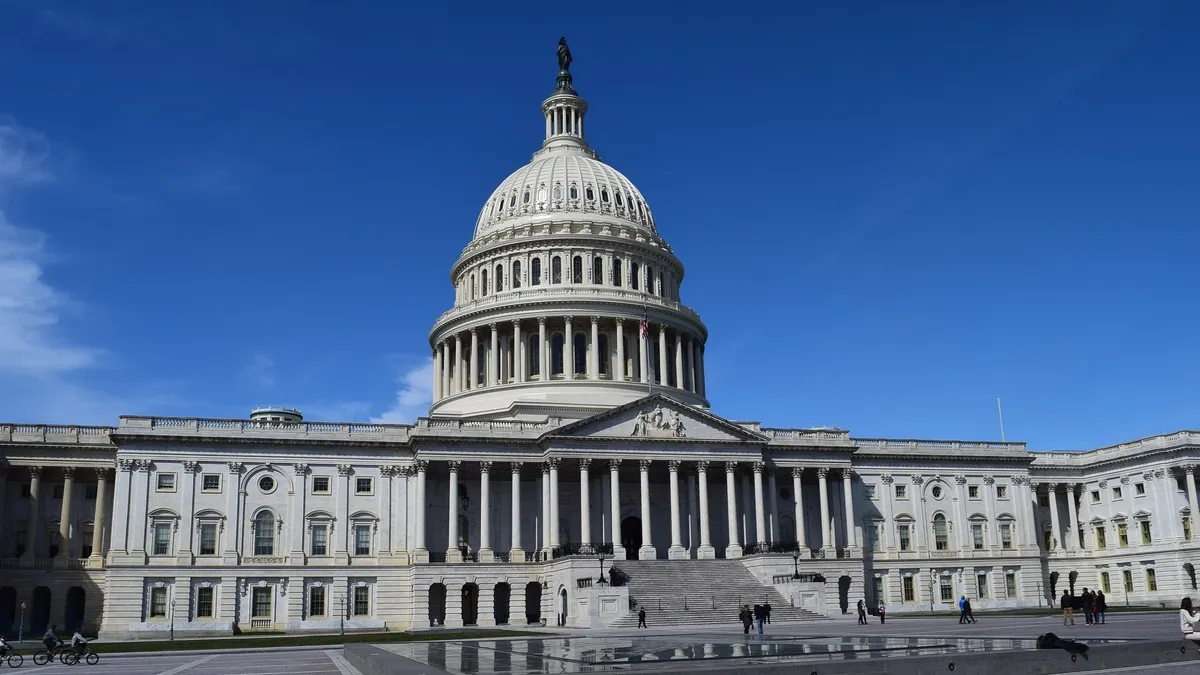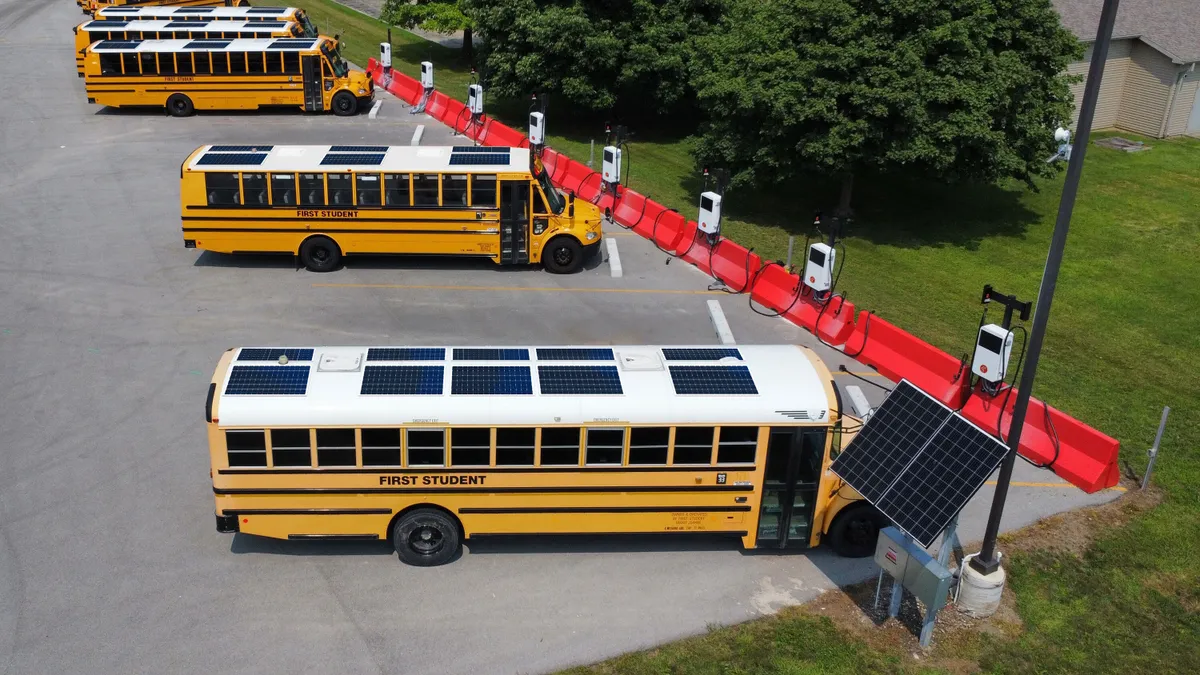Moves to reauthorize the Fixing America's Surface Transportation Act (FAST Act) ramped up Wednesday as House Democrats unveiled a new $494 billion plan for the nation's transportation.
The FAST Act, which expires on Sept. 30, provides long-term funding to surface transportation infrastructure like highways, vehicle safety and public transit. In preparation of this expiration, leading Democrats on the House Transportation and Infrastructure Committee got the ball rolling on the Investing in a New Vision for the Environment and Surface Transportation in America (INVEST in America) Act, which would authorize an additional $494 billion over five years for infrastructure needs.
That proposal, which they called a "key component" of Democrats' Moving Forward Framework infrastructure plan, would spend $411 billion from the Highway Trust Fund on improvements to highways, transit, safety and research, and $60 billion on rail. Those figures represent a 46% and 400% increase, respectively, over current spending levels under the FAST Act.
A major tenet of the INVEST in America Act is restoring the nation’s transportation infrastructure to a state of good repair, in part by addressing transit’s $100 billion maintenance backlog. The bill also provides grants for alternative fuels and electrification, and looks to address the effects of climate change through enhancing resiliency and using more modern building materials.
"It would be a dereliction of duty if we were not referencing climate change in a 21st-century transportation bill," Subcommittee on Highways and Transit Chair Eleanor Holmes Norton, D-DC, said on a call with reporters.
The bill would also provide funding to Complete Streets programs in a bid to enhance street safety, and would provide $250 million in grants to encourage local governments to innovate and cut congestion.
Given the coronavirus pandemic, committee chair Rep. Peter DeFazio, R-OR, said the federal government would also provide $83.1 billion in FY21 to help local governments administer programs and preserve jobs, with no local matching requirement. On a call with reporters, DeFazio said that was "in recognition of the disruption that's ongoing" amid the health crisis.
The bill is expected to be marked up in committee in two weeks, then hit the House floor for a vote in early July. But Republicans on the committee are unconvinced by the plan, calling it "partisan" and saying it would add uncertainty to transportation given the disruption of COVID-19, among other problems.
"[T]oday's partisan bill lacks critical flexibility for the states, its outsized funding increases for urban areas will leave rural America even further behind, and numerous new green mandates and extreme progressive goals are woven throughout the fabric of new and existing core programs," Republican committee and subcommittee leaders wrote in a joint statement.
In an interview with Politico on Wednesday, U.S. Secretary of Transportation Elaine Chao said the Trump administration, which first issued infrastructure principles in Feb. 2018 but has seen plans flounder since, believes any infrastructure package should be bipartisan. She said while Congress has eased some of the financial burden, more must be done, with FAST Act reauthorization "another vehicle" for investment.
Chao added that any infrastructure package needs to look beyond "shovel-ready" projects, which have come under fire in previous stimulus plans.
"We need a coordinated, long-term plan to address the infrastructure needs of our country," Chao said in the interview.
Last July, the U.S. Senate Committee on Environment and Public Works (EPW), one of three with jurisdiction, unanimously advanced the $287 billion America's Transportation Infrastructure Act. DeFazio called the legislation "refreshing" for its provisions that would help cut emissions and reduce reliance on fossil fuels, but others said it does not go far enough, especially in getting the country to net-zero emissions by 2050 — something needed to curb the worst impacts of climate change.
"This is sort of an exaggeration, but you can think of the EPW bill as taking the FAST Act and adding some good things on top of it, but not really addressing the core underlying issues," Alex Laska, transportation policy advisor at think tank Third Way, said during a Wednesday conference call. "Those kinds of incremental improvements really don't meet the moment."
In a joint agenda released with Transportation for America, Third Way said equity should be at the heart of any transportation plan. The groups said a reauthorization should prioritize public transit; make current roads more efficient by placing less emphasis on high-speed car travel and prioritizing maintenance over expansion; set performance measures for goals like reducing emissions; and promote intercity rail travel.




















